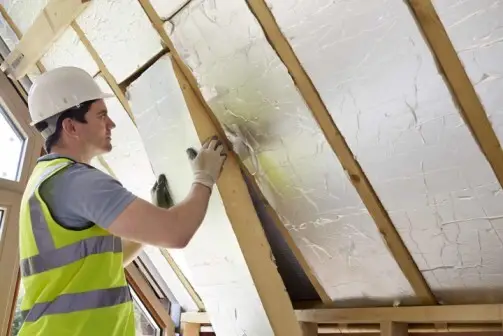Table of Contents
Insulating your home is necessary to save money, keep it cosy, and use less energy. Applying for home insulation grants through the Great British Insulation Scheme is great for UK homeowners. It provides free insulation measures to improve their home energy efficiency. However, applicants often encounter problems that delay or make the process harder. If you’re looking for home insulation, loft insulation, or cavity wall insulation, you must avoid common mistakes when applying. This can help you avail the free home insulation grant.
Let’s examine the most common mistakes households make when applying for insulation grants. Keep reading to learn how to avoid them and get the most out of the scheme.
Learn About Common Mistakes and How to Avoid!
The Great British Insulation Scheme offers free home insulation grants for various insulation needs. There is an extensive range of home insulation, such as cavity wall insulation and loft insulation, etc… The scheme aims to make homes in the UK more energy efficient. It is designed to reduce the country’s carbon emissions and people’s energy bills. To take advantage of the scheme, households must follow the guidelines below to avoid common mistakes. For a successful application process, let’s look into the specifics.
1. Not Checking Eligibility Criteria Thoroughly
One of the most common mistakes people make is not carefully reading the requirements for the insulation grant. Households who want to join the Great British Insulation Scheme must meet specific criteria. It involves a household’s certain income type groups and a specific type of home. Your application may fail if you don’t meet these requirements.
How to Avoid
Please carefully read all the requirements before you apply. If you’re unsure about eligibilty, talk to a professional. They can advise you and help you determine if you are eligible for the grant.
2. Incomplete or Inaccurate Application Forms
It is very important to fill out the application form fully and accurately. If you miss details or make mistakes on your application, it could be delayed or fail. Problems that happen frequently include wrong personal information, lost papers, or mistakes in financial dat
How to Avoid
Double-check all of the information you provide. Include all the appropriate paperwork, like proof of pay and land home ownership. Also, having someone else review your application can help you find any mistakes you might have missed.
Check Your GBIS Eligibilty!
3. Not Understanding the Scope of the Grant
People often get the insulation grant wrong by not understanding what it covers. It’s possible that the grant won’t cover all kinds of insulation. Or the incentive that can be given might be limited. Some things like loft and cavity wall insulation are covered, but extra costs for special materials or work might not be covered.
How to Avoid
Read the grant carefully to discover what it covers and doesn’t. If you’re unsure, contact the grant source to learn more. This can help you make a good budget and avoid spending money you didn’t plan to.
4. Choosing Unqualified Contractors
Like us, picking the right workers is an important part of a good insulation job. But some people make the mistake of going with workers who aren’t trained or who aren’t accepted by the Great British Insulation Scheme. This could lead to poor work, and they might even be kicked out of the grant scheme.
How to Avoid
Always hire registered workers like us. Check out the service provider’s page. Check their qualifications and read reviews or recommendations from people who have worked with them.
5. Ignoring the Application Deadline
You must apply for the insulation grant scheme on specific dates. If you miss these dates, you might miss your chance to get the grant. Many people make the mistake of putting off getting all the papers they need or not giving themselves enough time to do so.
How to Avoid
Put the application due date on your calendar and set an alarm to remind you. Start getting all of the papers you’ll need early on. If you have any problems, call the scheme’s support team immediately.
6. Overlooking Maintenance and Upkeep Responsibilities
After you finish insulating your home, it’s important to keep the insulation in good shape. Unfortunately, some applicants think that the grant will cover the costs of repairs. Or that the insulation will last forever without any care.
How to Avoid
Keep in mind that the grant usually only covers the costs of installation and not ongoing upkeep. Ask your provider how to maintain your insulation correctly. And do what they say to ensure it lasts and works well.
7. Not Considering the Environmental Impact
Even if the main reason for asking for an insulation grant is to save money on energy costs. But it’s also important to consider how your choices affect the world. Some people only think about the money side of things and don’t think about how picking eco-friendly products and methods will help the earth.
How to Avoid
Choose soundproofing products and methods that are good for the environment. Talk to your provider about these choices and pick methods that fit your environmental values. This can help make your home better and more durable in the future.
8. Ignoring the Fine Print
The terms and conditions of the insulation grant often have important details that candidates miss. This can include information about how to get grant, who is eligible, and other legal duties. Without attention to these details, things could go wrong and cause problems in the future.
How to Avoid
Before you sign anything, make sure you read the small print carefully. If you’re unsure about the terms, talk to the grant provider. Knowing all the terms and conditions can help you make better choices and avoid shocks later.
9. Not Taking Advantage of Additional Support
Many people who want to apply for the Great British Insulation Scheme are unaware of the extra help and upgrades available. These can include tips on how to save energy, extra funds for other home changes, and more.
How to Avoid
Check out all the help and measures that are offered through the scheme. Contact the grant’s provider to find out what other perks you can get. This can help you get the most out of the insulation grant and make your home more energy-efficient.
10. Underestimating the Disruption to Daily Life
When you’re doing big insulation jobs like cavity wall insulation or loft insulation, it can interfere with your daily life. Some applicants don’t realise how bad the problem is, which causes stress and trouble.
How to Avoid
Talk to your worker about the project’s schedule and any problems that might come up. Make plans beforehand, especially if the work will be done in parts of your home that you use often. Being ready can help keep your daily life as normal as possible.
11. Neglecting to Monitor the Work Progress
Some applicants don’t check on the progress of the insulating work once it starts because they think the workers will do a great job. This can cause problems like lousy fitting or using the wrong materials to go unnoticed.
How to Avoid
Stay involved in the project and check in often to see how things are going. Talk to the installer and ask for information. If you see any problems or have concerns, you should take care of them immediately to ensure the work meets your needs.
12. Overlooking the Importance of Proper Ventilation
When adding insulation, especially cavity walls and loft insulation, there must be enough airflow. Some people don’t pay attention to this, which can cause problems like too much wetness and lousy air quality inside.
How to Avoid
During planning and construction, ensure your provider considers airflow needs. Discuss options like air bricks, open soffits, or automatic ventilation systems to keep the air inside healthy and prevent moisture issues.
13. Not Reviewing Feedback from Previous Grant Recipients
Reading about other people’s situations can teach you a lot and keep you from making the same mistakes. However, many people who apply for grants forget to read the comments and recommendations of people who have already received grants.
How to Avoid
Check out reviews and comments from people who have applied for and received the insulation grant. This can give you information about the application process, how well the worker did, and how satisfied you were overall. Use this knowledge to make smart choices and avoid problems.
Conclusion
Hence, applying for an insulation grant through the Great British Insulation Scheme is a great way to make your home more energy efficient. It can also reduce energy bills. However, avoiding common mistakes is important for a smooth application process and the placement of a home, cavity wall, and loft insulation. Homeowners can get the most out of the insulation grant by being informed and proactive. Enjoy a more comfy and energy-efficient home.
Frequently Asked Questions
Does Insulation Grant Under GBIS Cover All Types of Insulation?
GBIS covers different types of insulation measures, such as loft and cavity wall insulation. Before applying, it’s important to see what’s included.
How Can I Avoid Common Mistakes When Applying for An Insulation Grant?
To avoid common mistakes, carefully pursue the eligibility criteria. Send complete and correct forms. Pick a qualified provider, and be aware of what the grant covers and how it works.
What Happens If I Miss the Application Deadline?
If you miss the date, you might have to wait until the next time you can apply or look into other grants. Check for changes often and set reminders to avoid missing any due dates.
What are the Long-term Advantages of Investing in Quality Insulation?
Good insulation can significantly lower energy bills, make your home more comfortable, and raise its value. Hence, it’s a beneficial investment that pays off in the long term.



